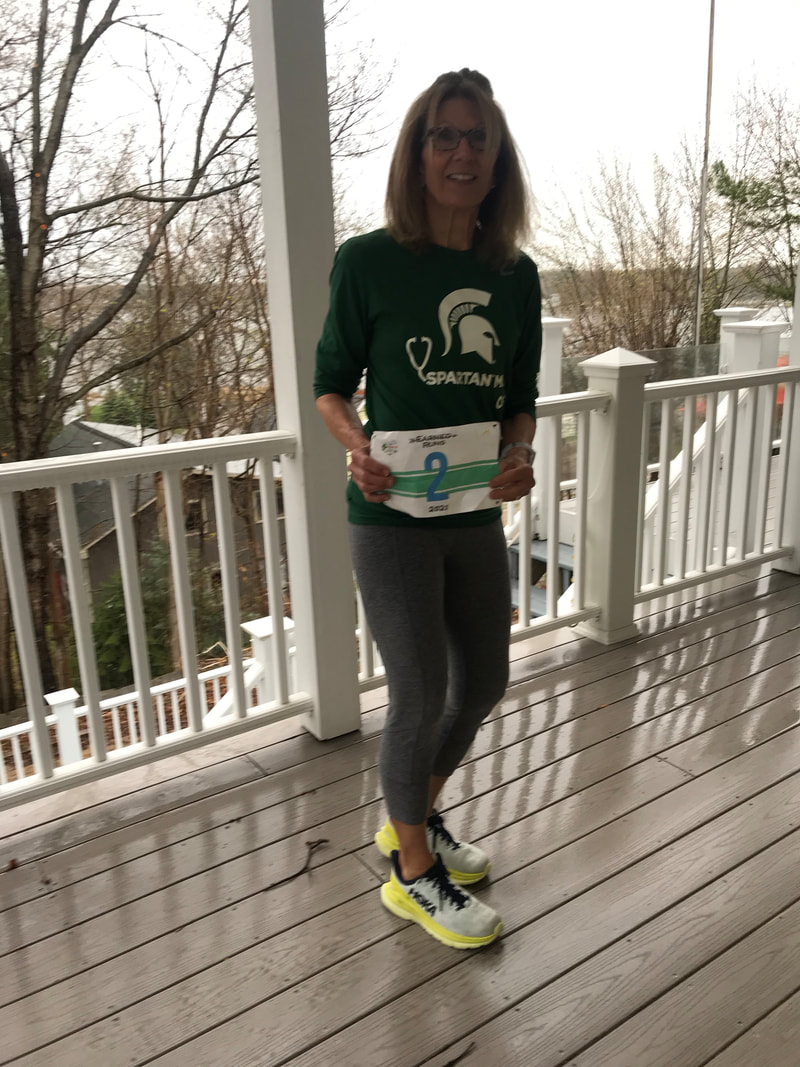BLOG
|
|
RUNNERS HOPING TO INCREASE SPEED ARE ADVISED TO TAKE 180-200 STEPS PER MINUTE. What is the speed equivalent for walkers? The pace of a brisk walk has been identified at 100 steps/minute. That’s a bit faster than strolling, but still not very fast. Wendy Baumgardner from Verywellfit.com provides more information that walkers might find helpful in an article. “Average Steps Per Minute for Various Activities”.
Baumgardner identifies the “Average Pedometer Steps for a Mile of Walking or Running”, for a few different paces, “as measured by researchers”. The specific research is not referenced*. Although the intent of the article is NOT to address walking speeds, it contains information that’s pertinent to this discussion: Pace: “average” PEDOMETER steps per minute WALKING 30 Minutes/mile (2mph): 61 20 minutes/mile (3mph): 100 15 minute/mile (4mph): 152 12 minute/mile (5mph): 242 Racewalking (speed not given): 197 Have you personally counted your steps per minute at different walking intensities/speeds rather than relying on a pedometer reading? If so, you’ll have gotten the impression that to walk faster you need to take smaller steps more frequently to increase the speed. The length of stride will vary between individuals of different height, of course, and so will the step number. The purpose of this Earned Runs blog is to introduce the idea that as well as training to cover the 13.1 mile distance, half marathon walkers may wish pay attention to speed. To first determine their individual step number per mile at a specific pace and then occasionally monitor their steps and pace in training to increase speed. Because longer distances races may require that walkers finish with an average pace of 15 or 16 minutes per mile, it’s reasonable to aim for achieving this overall average pace, or faster. The race course may officially close after a set timepoint, and although you certainly can continue walking, the timing clock might be stopped, and normal street traffic flow will resume. Potentially it may be less safe to walk, and you might not record an official time. Finisher medal distribution may stop too. To count steps per minute; the easiest method is to note the number taken in 15 seconds and multiply it by 4 to calculate steps per 60 seconds (1 minute). Compare the result with the average paces listed above. Race pace will need to be somewhere nearer or above 152 steps/minute to attain a 15 minutes per mile speed; definitely well above 100 steps/minute (20 minutes per mile). It might be convenient to use the Thursday HIIT sessions to work on speed at first, during the high intensity 3-minute intervals. Also, check out the Verywellfit.com article by Baumgardner “How to Walk Faster For Better Workouts” that describes techniques to improve walking form that the author indicates are “borrowed from race-walking but without the hip motion”. Walkers may notice that paying close attention to form, time, and step number during speed training sessions will require greater mental concentration than that needed on easy walk days. Try working hard on one of the shorter weekday walks (HIIT Thursday for example) and allow yourself to mentally relax and enjoy the long weekend distance walk. After a 3-4 weeks of 1 short-day/week speed-training, perhaps you’ll notice a quickened pace on those long Saturdays. A short piece from Racewalking.com explains how walking fast over short distances can translate to maintaining faster speeds over longer distances. RUN & MOVE HAPPY! https://www.verywellfit.com/pedometer-step-equivalents-for-exercises-and-activities-3435742 https://www.verywellfit.com/how-to-walk-faster-3432918 http://racewalking.org/5quick.htm *The piece is reviewed by a Senior Medical Advisor.
0 Comments
Your comment will be posted after it is approved.
Leave a Reply. |
BRIDGE TO PHYSICAL SELF
Running, walking, and fitness activities enable us to experience our physical selves in a world mostly accessed through use of fingers on a mobile device. AuthorEARNED RUNS is edited and authored by me, runner and founder. In 1978 I began participating in 10K road races before 5Ks were common. I've been a dietitian, practiced and taught clinical pathology, and been involved with research that utilized pathology. I am fascinated with understanding the origins of disease as well as health and longevity. Archives
November 2023
CategoriesNew! Search Box
Earned Runs is now searchable! Check it out...
|


 RSS Feed
RSS Feed